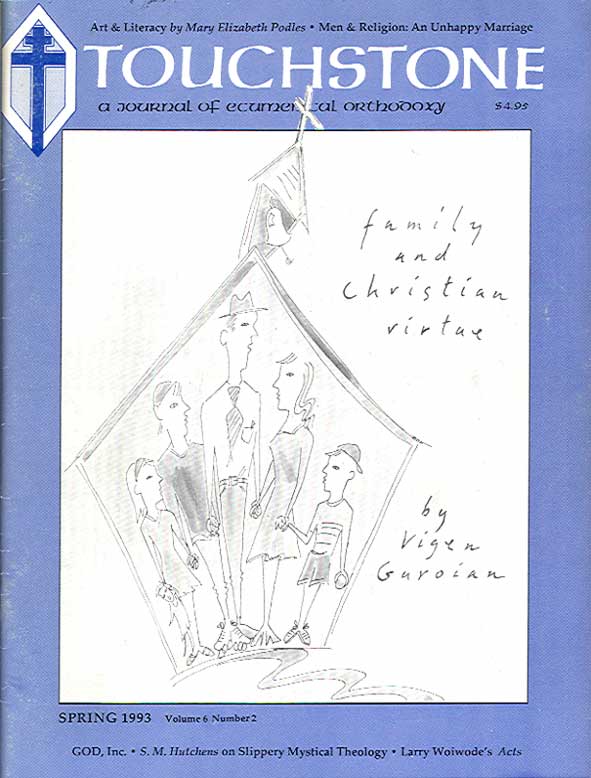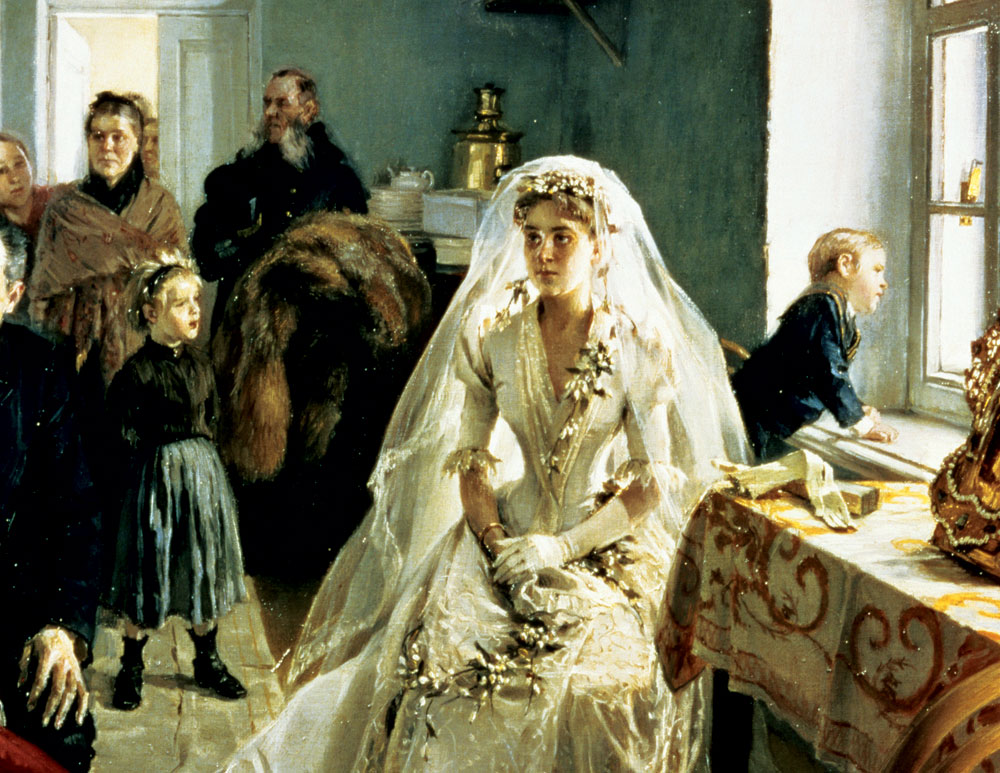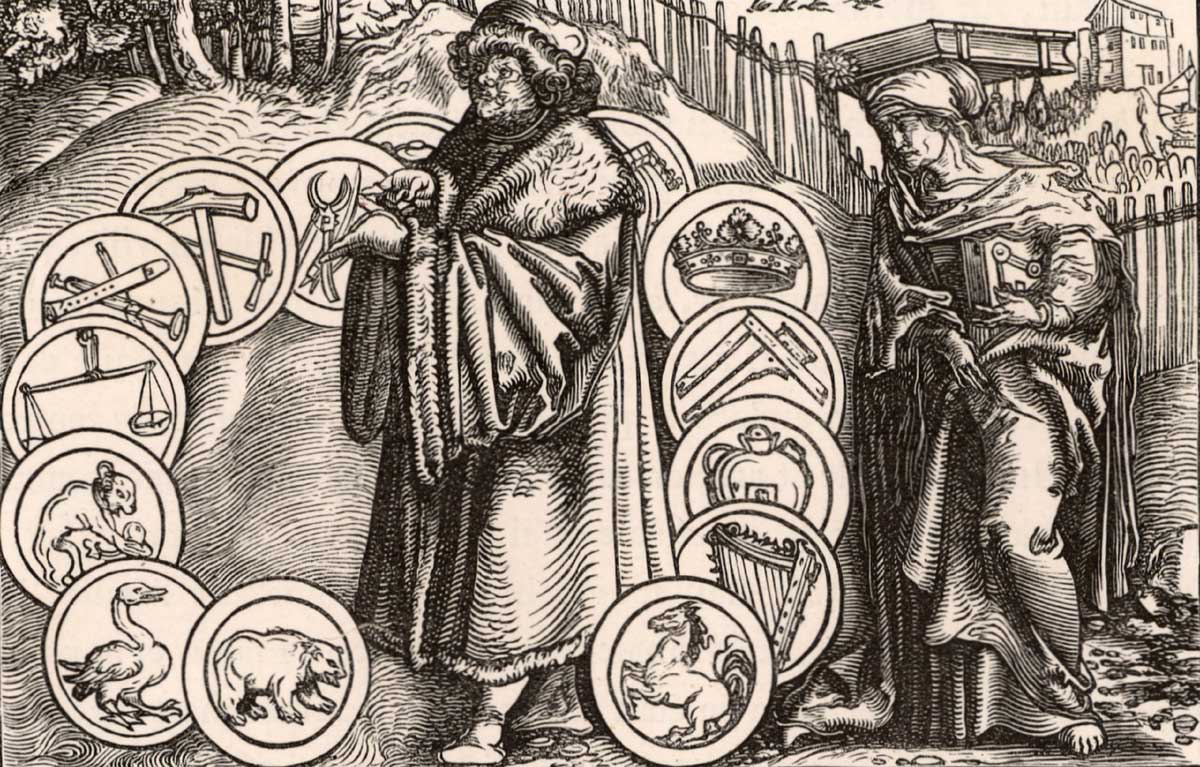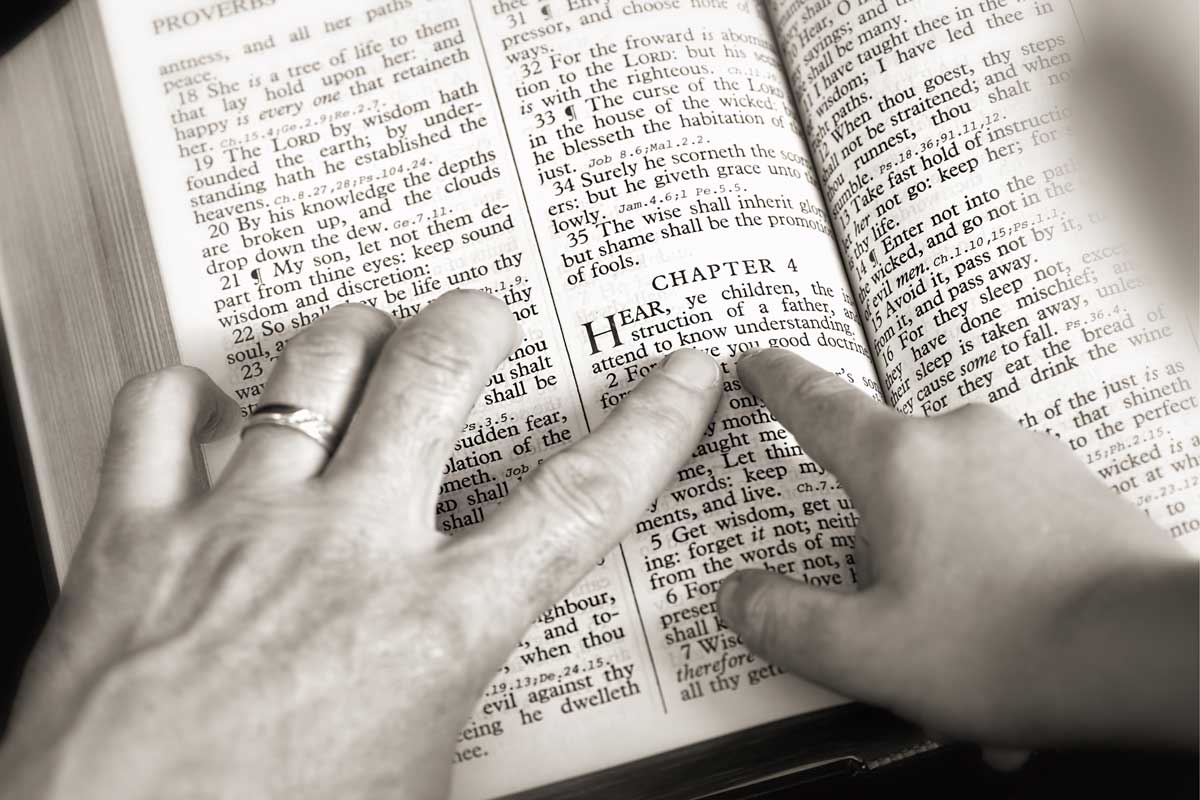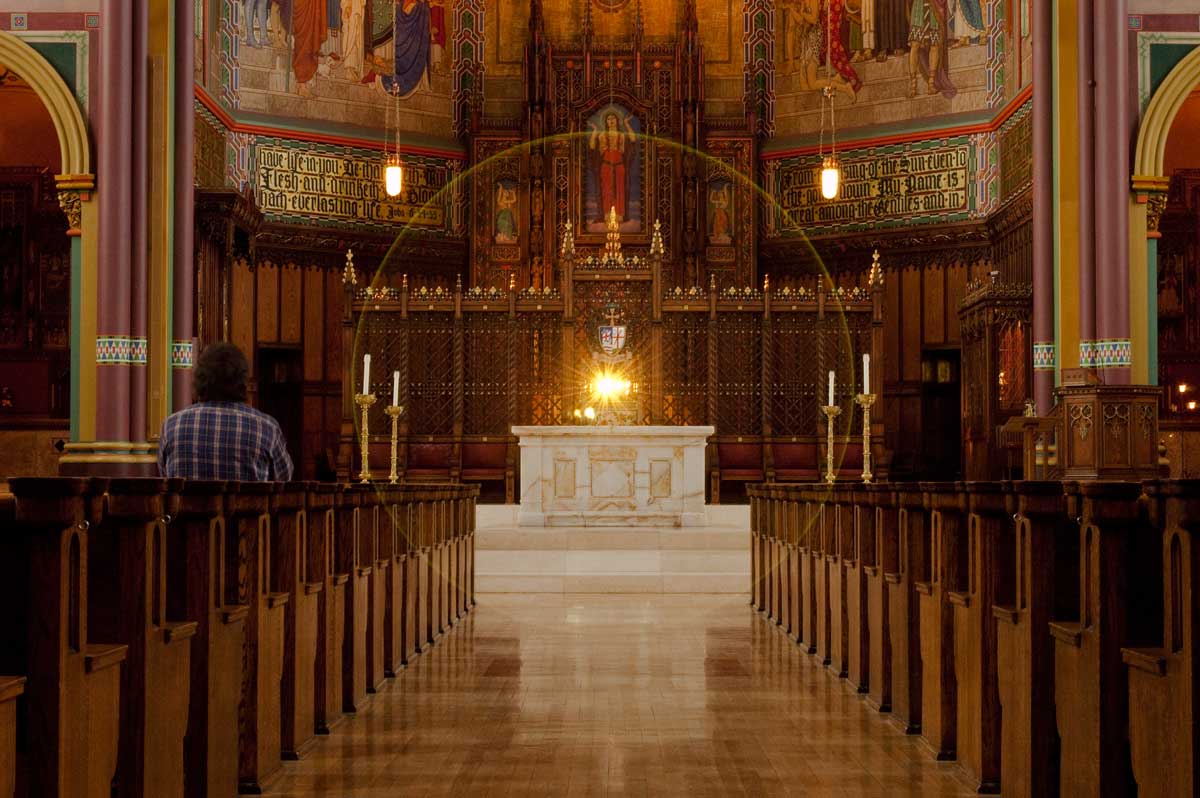Family & Christian Virtue in a Post-Christian World
Reflections on the Ecclesial Vision of John Chrysostom
by Vigen Guroian
Of the many quotable passages from the writings of St. John Chrysostom the one most often cited is located in his twentieth homily on Ephesians. It reads: “If we regulate our households [properly] . . . , we will also be fit to oversee the Church, for indeed the household is a little Church. Therefore, it is possible for us to surpass all others in virtue by becoming good husbands and wives.”1 Most often this passage has been invoked as proof text supporting high sacramental interpretations of marriage. Rarely has it become the occasion for a sustained discussion of what might best be described as Chrysostom’s ecclesial vision of the Christian family and household. That is the task of this essay. I also want to show how this vision helps to enable Christians to better understand what is truly at stake for the Church in the current debates over the family and moral values.
Chrysostom lived at a moment of genuine cultural crisis. The pagan culture of antiquity was in decline. Christianity had become a force with which to be reckoned. Yet views differed about what shape a future Christian culture might take. Chrysostom was among a minority of Christian voices, St. Basil having been another, who expressed serious misgivings about he emerging Christian order. Like Basil, he brought the spirit of monastic reform into his critique of society. He inveighed against the moral laxity and excessive preoccupation with material possession, power, and social status even among so-called Christians. Chrysostom’s ecclesiology powerfully expressed this reform spirit, as he struggled to steer a course which would lead neither to an imperial church nor a cake-frosting version of Christianity for the masses. His example is especially instructive for churches today as they themselves enter a definitively post-Christendom era marked by cultural deterioration. Christians are faced with difficult choices over how to relate to the emerging hegemonic secularity.
Chrysostom might easily have succumbed to the temptation to argue for the moral rehabilitation of the family as a means of securing societal stability. In our own time we hear repeatedly even from religious sources—Protestants, Roman Catholics, and Orthodox alike—that the family is of social value as a bulwark of societal stability. The presidential campaign of 1992 was replete with talk about family values and the importance of healthy and functional families to secure the promises of the American way of life. Less clear in the political rhetoric were the actual standards of this ideal American family and the sources of this family morality.
Chrysostom did not ignore the sociological dimension and function of the family. As he said on one occasion: “[W]hen harmony prevails [in the household], the children are raised well, the household is kept in order, and neighbors, friends and relatives praise the result. Great benefits, both for families and states, are thus produced.”2 He, however, subordinated this societal function to secondary or tertiary importance. The Christian family is primarily an ecclesial entity. Its calling is to the kingdom of God. In order to fulfill this vocation, the Christian family must practice a discipline of spiritual and moral askesis [practice]. Chrysostom was clear about the sources of a family’s morality. The source was Christ in his life and commandments.
Chrysostom’s vision of the ecclesial family was radical when he preached it in the fourth century, and it is equally radical in a post-Christian society. After Christendom, the church and spouses and parents can no longer depend upon a substantial residue of biblical and Christian values to subsist within the culture and be transmitted to the young apart from nurture within the community of faith. It ought to be obvious to Christian spouses and parents how truly radical their vocation as family is within contemporary society. Nevertheless what actually is entailed in being married “in the Lord” has frequently been forgotten. The printed and electronic media bombard Christians and non-Christians alike with powerful and seductive alternatives to the demanding, disciplined life to which the Christian family is called biblically and through the marital rites of the church. It is easy to think of the Christian family as merely a church-going version of those comfortable and idealized Cleaver and Huxtable families.
A lesson for our time taught by Chrysostom is that strenuous and sustained efforts must be made from within the churches to cultivate and restore the vision of the family as an ecclesial entity and mission of the kingdom of God. Sociologists tell us that increasingly, for vast numbers of Americans, family has lost its public meaning and outlook. Family is being redefined as a haven of private living, consumption, and recreation. A flight to privacy replaces civic-mindedness. Self-centeredness and hedonism replace personal sacrifice for children and community. Chrysostom’s ecclesial vision of family answers this deprivation of community, but in a fashion which can only look strange even to people who otherwise worry about the privatization and moral privation of family. For if from the sociologist’s or politician’s point of view the family has gone “out-of-joint” because it is not contributing as it should to the formation of viable community and civic virtue, Chrysostom reminds Christians that the Christian family is first a calling to community in service to God and his kingdom.
By looking at Chrysostom’s teachings on marriage and family through this prism, however, one is bound to bump into a much larger debate, quite at the center of contemporary Christian ethics. It is the debate over the general prospects for the Christian faith and ethics within a post-Christian world. There are those who cling to the hope that some version of a Christendom is still possible and that, therefore, Christian ethics can continue to be done in old and familiar ways of correlating Christian truth with norms and institutions found within the culture. There are others with the more modest hope of designing a new public theology for a pluralistic order. This search goes on in diverse and even opposing ideological camps, among neo-conservatives, mainline Protestants, and liberal as well as neo-Thomist Catholics. Others who are persuaded that Christendom has ended and never was a good idea in any case have turned to alternative models of a confessing church whose “main political task” lies “not in the personal transformation of individual hearts or the modification of society,” but rather, as Stanley Hauerwas and William H. Willimon have recently put it, “in the congregation’s determination to worship Christ in all things . . . and to build up an alternative polis”—that being the church.3 Between the contending parties accusations are flung back and forth over whether this or that proposed ecclesiology is overly accommodating towards the culture or irresponsibly sectarian.
Chrysostom helps us to see that this perennial question about the appropriate relationship of the church to the culture is reflected in microcosm within the empirical Christian family. With respect to the contemporary debate, I intend to demonstrate how Chrysostom’s way of stating the relation of family to church and church to culture eludes some of the easily uttered categories with which we have learned to pigeonhole others’ points of view. Chrysostom was neither sectarian, accommodationist, or triumphalist. He resisted the Eusebian Christian imperialism of the day. He was not taken with the Constantinian-Theodosian theocratic synthesis of church and state, which when later codified by Justinian, provided the ideological framework for Byzantine theocracy. Nor did Chrysostom propose that the church retreat into the catacombs. And he did not believe that the only pure and true Christianity was restricted to the monastery. Rather, Chrysostom’s idea of an evangelical and socially responsible Christian faith was bound up with his pastoral and moral theology as he addressed Christian parishioners and Christian rulers alike. In all that he said about the nature of the church/world relationship, Chrysostom returned again and again to the belief of the Fathers that salvation is accomplished from within the ecclesia through its process of making the kingdom of God present to an unbelieving world. For Chrysostom the family as an ecclesial entity figured centrally in this salvific process.
The “Ecclesial” Household
Vigen Guroian was, until his retirement, Professor of Religious Studies in Orthodox Christianity at the University of Virginia in Charlottesville. His books include Tending the Heart of Virtue: How Classic Stories Awaken a Child's Moral Imagination (2002) and The Orthodox Reality: Culture, Theology, and Ethics in the Modern World (Baker Academic, 2018).
subscription options
Order
Print/Online Subscription

Get six issues (one year) of Touchstone PLUS full online access including pdf downloads for only $39.95. That's only $3.34 per month!
Order
Online Only
Subscription

Get a one-year full-access subscription to the Touchstone online archives for only $19.95. That's only $1.66 per month!
bulk subscriptions
Order Touchstone subscriptions in bulk and save $10 per sub! Each subscription includes 6 issues of Touchstone plus full online access to touchstonemag.com—including archives, videos, and pdf downloads of recent issues for only $29.95 each! Great for churches or study groups.
Transactions will be processed on a secure server.
more on family from the online archives

31.5—September/October 2018
Errands into the Moral Wilderness
Forms of Christian Family Witness & Renewal by Allan C. Carlson
more from the online archives
calling all readers
Please Donate
"There are magazines worth reading but few worth saving . . . Touchstone is just such a magazine."
—Alice von Hildebrand
"Here we do not concede one square millimeter of territory to falsehood, folly, contemporary sentimentality, or fashion. We speak the truth, and let God be our judge. . . . Touchstone is the one committedly Christian conservative journal."
—Anthony Esolen, Touchstone senior editor





